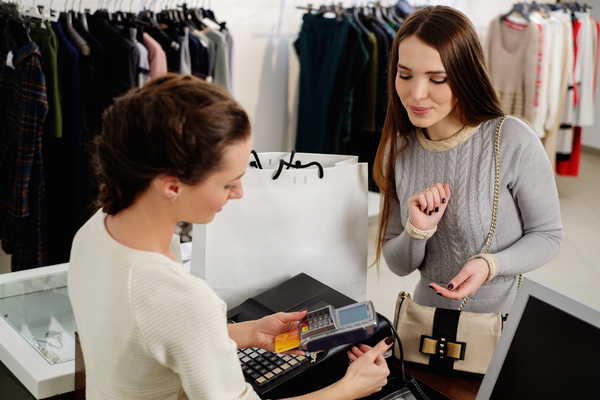Facebook‘s proposed purchase of Oculus VR, makers of the Oculus Rift virtual reality head-mounted gaming device, surprised us all. Prior to this Facebook had only bought other software companies (Gowalla, Instagram, and WhatsApp among them), so what was it doing buying a company that makes hardware for gaming?
I think the reason is that the device probably has more applications than the founders of Oculus first thought of. Oculus comes from the gaming culture – an early demo was done using the PC game Doom – but Mark Zuckerberg, apparently an early investor in the company in a personal capacity can see many more uses than this.
Virtual reality is engaging and fun. Compared to a video on a flat screen you feel more like you‘re in the action, video and sound playing on your senses. Oculus Rift and Sony‘s Morpheus are at the cutting edge of technology in this area. Put this into a retail environment and you have something that could be a potent weapon in enabling the high street to offer more of an experience, and help it to differentiate from online shopping.
A couple of recent examples have shown the potential. First, Top Shop ran a virtual reality version of their catwalk show in-store during the recent London Fashion Week. An area of the store was equipped with units, and shoppers could use them to experience the show as it happened, in a far more engaging way than if they‘d just seen videos or pictures of it. There‘s a video of it on YouTube – search for Top Shop Virtual Reality.
Second, Pepsi have been carrying out a stunt on Oxford Street where they replaced the glass at one end of a bus stop with a screen disguised as a clear window, where objects like flying saucers and robots could appear overlaid on the real street. Again footage on YouTube shows how engaged (& freaked out) people were by it. Virtual reality like this could make shops and shopping centres a much more fun place to spend time, and give people a reason to go to the shops. Sports shops could show the equipment and clothes in action, or even organise special event to watch events live from anywhere in the world. Book shops could take people into fantasy worlds to promote titles like Game of Thrones, or on safari to promote wildlife books. Entertainment shops could take people into studio sets, or let them experience the special effects in a more real way.
But it needn‘t all be entertainment. Virtual reality also offers great potential for education and training. There are already military uses for similar technologies to prepare people for situations, and stores could use the technology to host masterclasses by experts, for example celebrity chefs, or golf pros. Facebook can also see the communication potential of the technology. Virtual reality would be much more engaging for seminars and conference calls than webcams and webinars, and the same is true in retail. Stores could organise consultations with fashion and beauty experts, that customers could take part in virtually. Remote access could make it viable for stores outside the capital to get involved with these sorts of things.
All of this could help the high street continue it‘s journey to becoming more immersive, more experiential, and somewhere where you spend time browsing rather than just nipping in and out for specific items. It could also see the further rise of pop-up temporary showrooms for specific brands, like the ones eBay has operated, that allow people to see and experience new ideas and products, but do not actually sell anything physical themselves.
We need to have some caution, since neither Oculus nor Sony have release dates for their products yet, but in three to five years these things could be reality.



